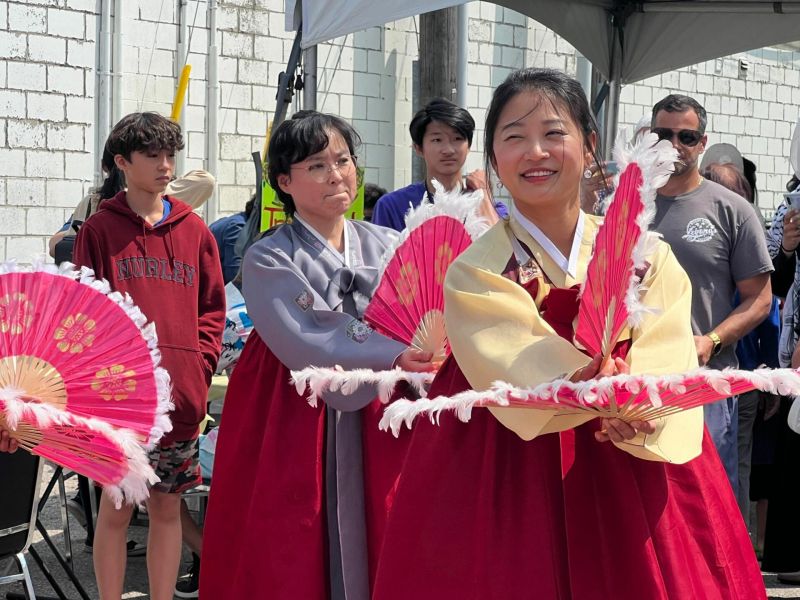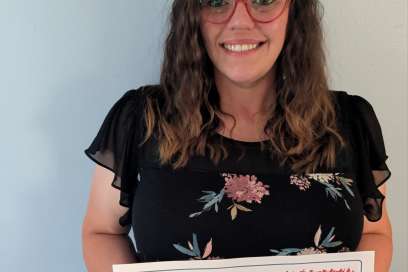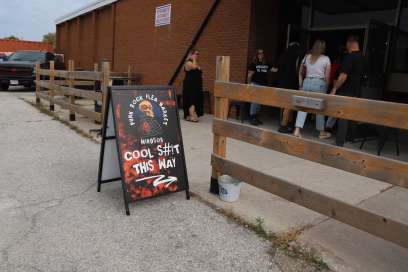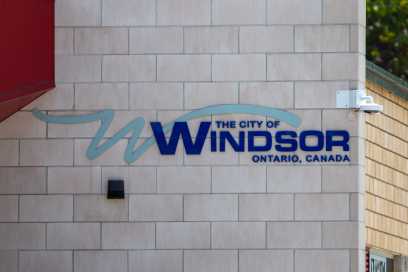Annual Contest Provides Opportunity For Local Playwrights
As spring descends upon the area, one theatre company is spreading warmth to local playwrights.
Continuing with tradition, the deadline for Post Productions‘ 8th annual Windsor-Essex Playwriting Contest is fast approaching. Providing an opportunity for local talent, entries from those participating are due by April 20.
Although it’s come a long way since being introduced, the goal remains simple as always.
“The contest was created in 2018 by [co-coordinator and judge] Fay Lynn and I, along with our former partner Michael O’Reilly,” said coordinator and judge, Michael K. Potter. “In our opinion, there was a lot of artistic and literary talent in Windsor-Essex but not enough opportunities for aspiring playwrights to show off what they could do. It’s difficult to produce your own script and requires a writer to have several skill sets beyond simply writing. Not everyone can do all of that and not everyone wants to even try. It’s daunting.”
Understanding the necessary expenses and lack of affordable venues regardless of someone’s experience level, Post sprang into action. Ensuring local artists from amateur to veteran had an established theatre company behind their play, a winning script would give writers a stable way to present their work.
It’s a necessity that wasn’t merely imagined either.
“The idea of a contest like this was something we discussed when Post Productions was founded,” said Potter. “I think what finally convinced us to do it was that we were receiving unsolicited scripts from people who were trying to get them produced. When Matt St. Amand sent us the script for Shelter in Place after he saw our production of Oleanna, we thought there needs to be more opportunities for people to see their work produced onstage. Because I’m a geeky educator on top of that, there has to be some developmental aspect to anything that I do. So we decided to use the contest as a vehicle to help people get constructive feedback on their work as well.”
Starting with the idea that playwrights putting in the work would be rewarded with success, a plan was soon created. Designed to help those interested, Potter developed a rubric to ensure plays are judged as objectively and fairly as possible.
This process has served the contest well since its inaugural outing.
“The basic process behind the Windsor-Essex Playwriting Contest hasn’t changed since the first year,” said Potter. “Scripts by writers who live in or hail from Windsor-Essex are accepted by a certain deadline. Those scripts are read and assessed individually by judges using the rubric. Each one scores scripts and writes some feedback on their own. Then all of the judges meet as a group to share scores and feedback and discuss the things we agree on or disagree on.”
From there, scripts with an average score above a certain standard are considered for the contest’s final round. Detailed notes are taken at the audio recorded meeting as well, which then get turned into three to five pages of constructive feedback. In service of helping contestants improve their work, it’s then sent out along with a decision letter to everyone who participated.
Finalists are then given a month to revise their scripts using the feedback they’ve received. Once that deadline arrives, judges repeat the same process from round one until unanimously deciding on a winner. Runners-up also receive a second round of feedback for their efforts.
Ensuring things are easy as possible for all involved, Post has made some modifications over the years however.
“The basic process has been the same for eight years now, But there have been changes to the entry requirements and certain particulars of the process,” said Potter. “The rubric has been revised a few times. The current rubric contains 39 indicators spread across five criteria: character, story and structure, theme and genre, craft and professionalism and brand compatibility. Since each script takes a minimum of about 25-hours to go through the process, each year we’ve accumulated many, many more hours of experience. That’s enabled us to refine our criteria and indicators over time.”
More recently, a bigger change was deciding to keep each author’s identity hidden. Upon receiving them, Lynn now anonymizes scripts. This makes her the only one who corresponds with contestants. Wanting to eliminate any risk of bias, it’s a practice that’s maintained even when someone uses an obvious pseudonym.
While put into place to maintain fairness, another motive for the move was also in play.
“It’s done to prevent bias, but also to prevent people we know from assuming that we’re personally rejecting them (laughs,)” said Potter. “In the first few years of the contest a lot of our friends and acquaintances submitted scripts that either didn’t win or didn’t make it to the second round. Unfortunately they seemed to take that rejection personally. Now we can say that we honestly don’t know who wrote the scripts we’re assessing and that helps us maintain smooth waters.”
Removing identifying features from all entries extends to other information too.
“The anonymization of the scripts is a relatively new feature, but it follows from something we’ve always done, which is to keep confidential any additional information, explanation or resources that the playwrights may submit along with their scripts,” said Lynn. “For example, sometimes submitting playwrights will include a lengthy email with their script, describing everything from the story behind their writing of the script to their upbringing and academic credentials. We do not, as a rule, share these details with the other judges because the script has to be able to stand on its own merit.”
Once scripts are collected and anonymized, a copy of each one is given to the panel so they can read and score each entry individually. Once finished, judges then submit their scores, written feedback and notes to Potter. Ensuring those involved don’t influence each other’s scoring, this is done before everybody gets together for a group discussion to decide which scripts move forward.
In terms of excitement, it’s also where the action takes place.
“The disagreements come about when people really get to share their own reactions and how the script affected them in the discussion phase,” said Potter. “Often judges will have favourites that they’ll champion and argue for. A good argument can change the minds of the other judges. This has happened many times and it’s one of the reasons we want judges with points of view very different from our own. Ultimately our decisions have to be unanimous. This isn’t a democratic process; it isn’t a majority vote. A script can only move on to round two if all of the judges believe it should, which means they believe it’s good enough to be a potential winner, they like it and that any changes necessary to get it to the finish line could be done by the playwright within a month.”
Requiring countless hours of work without monetary compensation, these qualities aren’t always enough to guarantee judges will be a good fit either. Although they know many experienced people in theatre who are uniquely equipped to read and offer script feedback, the pool is a small one for the company to choose from.
Happy with last year’s panel, 2025 marks the first time everyone returns to judge the contest again. Joining Potter and Lynn, Shana Thibert from Revolution Youth Theatre, Kieran Potter, April and Dan Savoie will decide this year’s winner.
Working with them before, Michael is confident they’ll provide a perfect blend of voices for the contest.
“Each of the judges brings their own experiences, perspectives and insights to the process, which creates robust and lively discussion,” he said. “Each of them has proven they’re able to take on the work necessary and assess scripts fairly. Thibert was originally invited four years ago because in conversations with her we discovered that she was incredibly insightful about script writing, was a very careful reader and we already knew she was a hard worker. Kieran was invited to join last year because he’s an experienced theatregoer who had started committing himself to learning the craft of writing. He’d also been helping Lynn and I read and assess scripts outside of the contest for some time already. Dan and April were invited because they have years of experience as theatre critics, they had seen nearly every production from every company in the area for the last handful of years (as well as many elsewhere), and we were impressed with how well they were able to articulate their insights.”
Approaching individual feedback differently, some judges may write more than others. Going through the process, notes taken don’t have to be constructive but made up of raw thoughts, observations, commentary and suggestions instead. Once it gets to group discussions, some also contribute more readily than others. Because of this, Michael does his best as coordinator to make sure everybody’s voices are heard and no one feels left out.
Managing the conversation this way benefits those who submitted scripts too.
“Often during the discussions people will see the same scene or character or moment in very different ways, which is great,” said Michael. “Maybe one judge thinks a certain character interaction doesn’t work for some reason, then another judge points out that they’ve forgotten something that contextualizes the interaction in a very different way. That sort of conversation is very fun and I think contributes a lot to the process.”
Shaping these sessions into meaningful feedback for participants is also something the coordinator takes very seriously.
“It’s very important to me, as an educator, that we keep in mind the developmental purpose of the contest,” he said. “This means the criticism we provide to every playwright has to be as constructive as possible. It needs to be specific, focused, relevant, and easy to understand. It needs to identify strengths and weaknesses. Most importantly, it has to be phrased in such a way that the playwright who receives it understands what they need to do to improve. This is a big part of my role as coordinator of the contest. It’s primarily my responsibility to gather everyone’s notes and feedback together, organize the feedback so that it clusters into specific points and phrase it constructively.”
When it comes to what Michael hopes to receive, his criteria is surprisingly wide. Excited by good stories that are new to him, the judge is open to several possibilities. Although most submissions were comedies and dramas when the playwriting contest first started, genres have become increasingly diverse in the past few years. This includes more romance, horror, fantasy, thrillers and scripts that combine other genres. Showing a possible reflection of the current landscape, dystopian sci-fi has also become more common.
For Lynn, she is just happy that playwrights continue to take part year after year.
“My hope every year is that people submit, simple as that,” said the co-coordinator. “There’s always a little fear that we won’t receive any submissions and the contest will be a bust. That hasn’t happened yet, thankfully. This year we’ve already received a few submissions ahead of the deadline, which is great! I’m always excited to read new stories and imagine what a stage production of those stories might look like. I love talking with my friends about theatre in general, particularly scripts and especially new scripts. Every submission we receive opens up new possibilities and ideas and discussions. For me, the Windsor-Essex Playwriting Contest is revitalizing.”
Wanting scripts that make them care, interesting and engaging characters that feel real are a huge aspect of what usually connects. Beyond that, creating a story that draws judges in and creates an emotional response is crucial as well. Whether it’s intrigue, curiosity, anticipation, suspense or wonder, the story laid out has to have something to say in the end.
For Michael however, an extra step needs to take place if a script is going to win from there.
“”In the second round, I also want to see that the playwright has seriously worked on improving what they submitted to round one, that they listened carefully to the feedback and attempted to make use of it,” he said. “A submission to the second round that clearly hasn’t paid attention to the feedback that we’ve spent hours crafting is an immediate turnoff and doesn’t bode well for the playwright. It means that person would likely be a nightmare to work with throughout the production and rehearsal process. It conveys laziness and a lack of humility. This doesn’t mean that I think a playwright should apply the judges’ feedback robotically or thoughtlessly. We can tell when someone has listened to the feedback, disagreed with its specifics but understood its underlying point then applied it in their own way. It’s often better than we suggested.”
Although some may be nervous about submitting a script to the contest, Post promises the experience is beneficial to those who put in the effort. As all participants walk away with several pages of constructive feedback, it’s an invaluable tool to help with further progress. As the panel gives a lot of their time to read, assess and discuss each script, it’s an opportunity that doesn’t come along often.
With four out of six winners being a playwright’s first script, the results may surprise those who participate.
“The hardest part of submitting to the Windsor-Essex Playwriting Contest is finishing that first draft of your script,” said Lynn. “If you’ve done that, you’ve already accomplished something massive. Now all you have to do, after you proofread of course, is attach that script to an email and hit ‘send.’ No matter what happens from there, you’ve written a story – you created something new – and, more than that, you were brave enough to put it out into the world for others to experience. Our aim is not to harm you, it’s to offer you objective constructive criticism. This is an opportunity to receive honest feedback on your work. Seize the opportunity! The absolute worst case scenario is your script doesn’t move on to the second round this year and you disagree with the feedback you’re given. In that case, depending on why you disagree, you potentially walk away with a better understanding of and a deeper connection to your own work. The best case scenario is your script becomes a living work of art presented live on a stage for friends, family, and strangers alike to experience.”
For more information on Post Productions or the 2025 Windsor-Essex Playwriting Contest, those interested can visit the theatre company’s website.
























